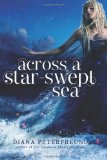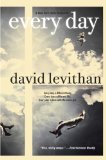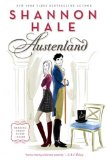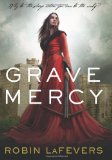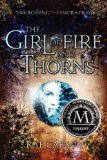Review of Across a Star-Swept Sea, by Diana Peterfreund
by Diana Peterfreund
Balzer + Bray (HarperCollins), 2013. 449 pages.
Starred Review
Okay, before I begin the serious review, I’m going to gush a little. I LOVED this book! SO good! I stayed up all night reading it, and I’m not the least bit repentant. It helps that I have a 3-day weekend starting, but still, I haven’t read a book good enough to make me do that in awhile, and I’m so happy to find one.
Across a Star-Swept Sea is a sequel to the delightful For Darkness Shows the Stars, which was a science fiction retelling of Jane Austen’s Persuasion. You honestly don’t have to have read the first book. Some characters from the first book do make an appearance in the second book, but this one takes place in a totally different part of a future devastated earth, so their societies developed differently, and you don’t need to know about the society from the first book.
This book is a science fiction retelling of The Scarlet Pimpernel. As you can tell from one of the first Sonderbooks reviews I wrote, back in 2001, The Scarlet Pimpernel is one of my all-time favorites, and I’ve read it many times. That made me appreciate all the more what a brilliant job Diana Peterfreund did with this retelling. There was almost a scene-for-scene correspondence.
The big, fun thing she did was flip everyone’s gender. So “The Wild Poppy” is a 16-year-old girl, Persis Blake. It puts quite a different twist on the story.
The Scarlet Pimpernel is about a daring Englishman who saves nobles from the French Revolution. In Across a Star-Swept Sea, they’re in the same future earth as For Darkness Shows the Stars, where humankind was devastated by an accident with genetic engineering. People who used the genetic engineering gave birth to children who were “Reduced” — never having more intellectual capability than a small child.
The people living on the two islands of New Pacifica believe they are the only humans to have survived the wars. But one of the islands, Galatea, is having a revolution. Over the years, the people who were not Reduced, naturally, became the ruling class. The Reduced were capable of nothing but being servants.
However, a generation ago, a cure was developed, so that the Reduced were able to have “Regular” children. The new class of people, “regs” were still not treated well on Galatea, so they began a revolution. And the worst part is that they have developed a pill that destroys the brains of the former aristos, so they are now the Reduced ones, fit for nothing but service.
Persis Blake, in her many disguises as the Wild Poppy, is rescuing aristos from the revolutionaries. No one knows her identity, and she poses as an empty-headed socialite in the princess regent’s court of the other island, Albion. Their society has perfected genetic engineering, so she uses “genetemps” to disguise herself in any way she wants. But when one of those genetemps goes wrong and makes her sick, she’s saved by a Galatean medic who was looking for passage to Albion anyway. He’s handsome and seems to want to help the refugees, but can Persis trust the nephew of the revolutionary leader?
All the wonderful plot twists of the original are here, except that she tells you sooner (right away) the identity of the Wild Poppy. But those who know The Scarlet Pimpernel would know immediately anyway, and this works well.
If they didn’t take you seriously, they would never see you coming. Persis was the most stylish, the most glittering, the most frivolous girl in Albion. There was no way she was secretly orchestrating a spy ring.
This book is marvelously written and will make delightful reading whether you’ve read the original or not. Those who already know and love the original, like me, will appreciate this book all the more. Magnificent!
dianapeterfreund.com
epicreads.com
authortracker.com
Find this review on Sonderbooks at: www.sonderbooks.com/Teens/across_a_star_swept_sea.html
Disclosure: I am an Amazon Affiliate, and will earn a small percentage if you order a book on Amazon after clicking through from my site.
Source: This review is based on my own copy, ordered via Amazon.com.
Disclaimer: I am a professional librarian, but I maintain my website and blogs on my own time. The views expressed are solely my own, and in no way represent the official views of my employer or of any committee or group of which I am part.
Please use the comments if you’ve read the book and want to discuss spoilers!
